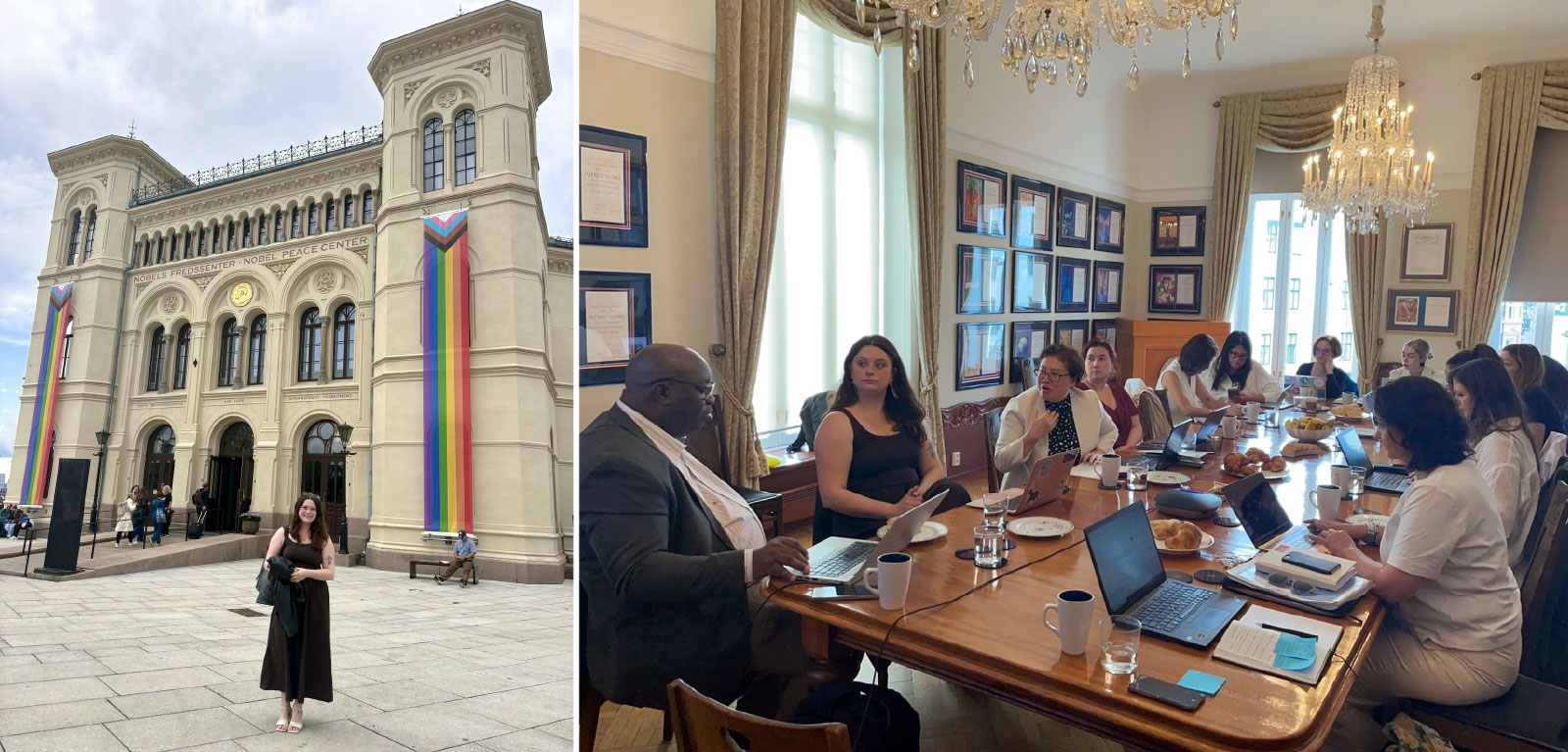Dr. Sarah Zarmsky with Global Experts in Oslo: International Law in the Digital Space
Dr Sarah Zarmsky selected as member of high level expert group to establish principles for upholding international law in the digital space; attends project launch in Oslo

Dr Sarah Zarmsky selected as member of high level expert group to establish principles for upholding international law in the digital space; attends project launch in Oslo
Dr Sarah Zarmsky, Lecturer at QUB School of Law, has been selected as one of 18 international experts that will work to establish universal principles for upholding international law and human rights in the digital space. The Project is called ‘Advancing International Law and Human Rights in the Digital Space’ and is part of the Digital Democracy Initiative by the DIHR in partnership with ICJ.
The project tackles the impact of digital technology on human rights by developing clear legal principles, advocacy tools, and support materials. It aims to guide governments, companies, and other stakeholders in understanding and fulfilling their international legal obligations in the digital space. It is led by the Danish Institute for Human Rights and the International Commission of Jurists and will run over the next two years. Together with Nieves Molina-Clemente, Chief Adviser for International Law, Human Rights and Tech at the Danish Institute for Human Rights, Dr Zarmsky published this blog post on Opinio Juris explaining the need for the project and its objectives.
"Developing a comprehensive set of principles and guidelines that consolidates international law and human rights standards applicable to the digital sphere is essential for safeguarding civic space."
At the end of June, Dr Zarmsky travelled to Oslo for the first expert group meeting and official launch of the project, which was held at the Nobel Peace Centre. The project will continue over the next two years and will produce impactful and extremely needed guidance for States, companies, and other actors as to how to uphold international legal obligations in the digital age.
